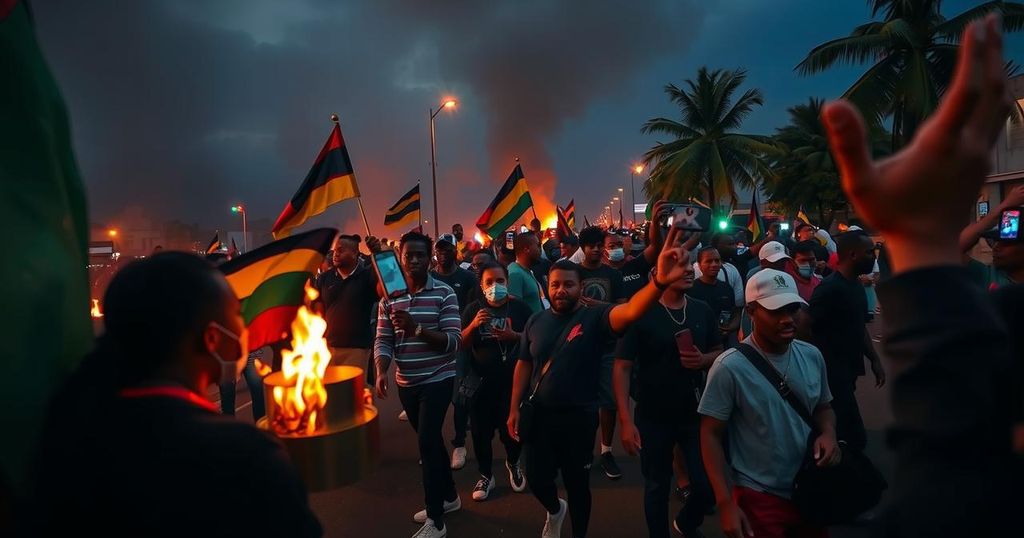Mozambique Faces Social Media Blackout Amid Protests Over Election Results

Mozambique’s social media services were disrupted amidst a nationwide protest strike following the disputed results of the Oct. 9 elections. Opposition leaders are contesting the electoral outcome that favored the ruling party candidate, leading to violence and a temporary internet blackout. Human Rights Watch reports at least 11 fatalities due to the unrest.
Mozambique is experiencing widespread disruptions in social media access as citizens engage in a planned weeklong nationwide strike. This strike has been prompted by opposition leaders contesting the legitimacy of the election results announced on October 9. According to NetBlocks, a global internet monitoring organization based in London, platforms such as Facebook, WhatsApp, and Instagram have been inaccessible since Thursday morning, thereby hampering communication among the populace. The unrest escalated following the electoral commission’s announcement of the election results, which indicated that Daniel Chapo, the candidate from the ruling Frelimo party, garnered 71% of the votes, while the opposition candidate Venancio Mondlane received 20%. Subsequent to this announcement, the country witnessed significant violence, including the suppression of protests, leading to a temporary internet blackout imposed a day post-election results. Reports state that this blackout resulted in a near-total disruption of mobile internet services. In the wake of the elections, Human Rights Watch has reported at least 11 fatalities and numerous injuries linked to the unrest. On the eve of the scheduled protests, police authorities reminded citizens via public messages to refrain from engaging in any acts perceived as ‘sabotage.’ This situation highlights the increasing tensions in Mozambique as citizens voice their dissent regarding the electoral process.
Mozambique recently held general elections on October 9, with approximately 17 million registered voters participating in selecting a new president, parliament members, and provincial governors. The outcome, which resulted in Daniel Chapo of the ruling Frelimo party being declared the victor, was marked by allegations of electoral discrepancies. This contentious atmosphere ignited widespread protests that have been met with force, resulting in significant violence and casualties. The government’s response has included restrictions on internet and social media access, aimed at curtailing the organization of dissent among citizens.
The situation in Mozambique underscores the critical intersection of electoral integrity and civil liberties. The imposition of social media restrictions during times of socio-political unrest raises significant concerns regarding transparency and the right to free expression. The continued protests are reflective of deep-seated discontent among citizens who seek accountability and fair governance. The international community must remain vigilant and attentive to the developments in Mozambique as they unfold.
Original Source: www.aa.com.tr






